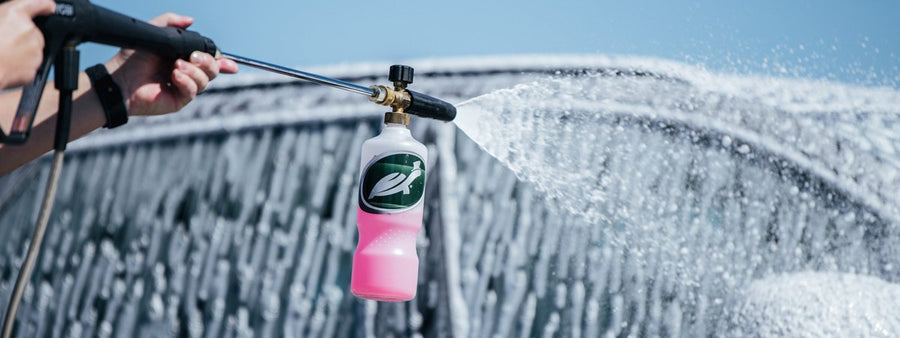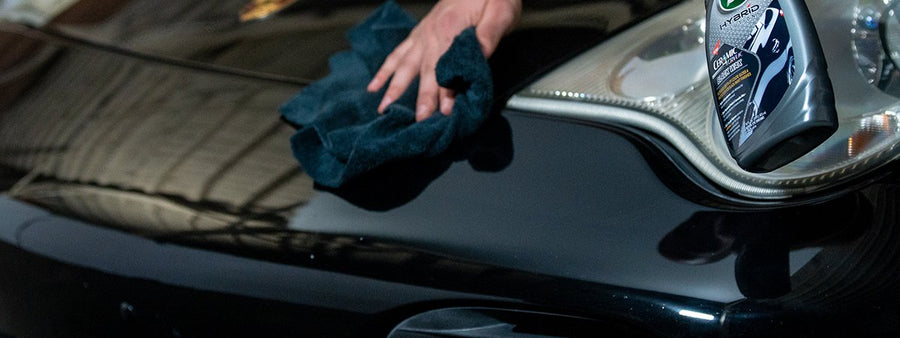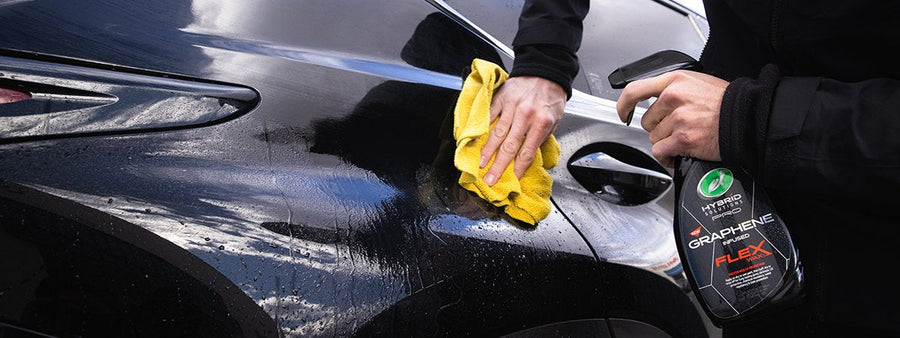
WHAT IS CERAMIC CAR WAX, AND DOES IT WORK?
In this article, you will learn:
- The advantages of ceramic protection over traditional car waxes
- The differences between a ceramic coating and a ceramic car wax
- Whether ceramic protection is right for your car
First off, before we dig deep into ceramics, we should take a moment and appreciate the fact that we’ve entered a real golden age of car care. After decades of small, incremental improvements to products like car wax, we’re now seeing radically innovative breakthroughs that will help you restore, preserve and protect your car better than ever. And no product represents this innovation better than ceramic car coatings. In fact, the introduction of ceramics in the early 2000s was the watershed moment when the automotive world began rethinking the science behind detailing our cars. Ever since, we’ve had one breakthrough after another to help us care for our cars inside and out!
So, let’s get into ceramics, the technological advancement that started this new age.

What you need to know
Since the introduction of ceramic automotive technology, the variety of ceramic-infused products has grown deep and wide. They include everything from complicated ceramic coatings applied by highly trained specialists to off-the-shelf, ceramic wax products made simple for the DIY detailer. And just as the products and application methods vary a great deal, so do the results and the costs. With so much to consider, it’s easy to get lost in your options, so let’s clear it up.
Essentially, silicone polymers are the things that make ceramics “ceramic.” Of these, silicon dioxide (SiO2) is the most commonly used. The real advantage of these silicon molecules isn’t just their unique toughness or shine, but how they adhere to your car’s clear coat. The easiest way to picture what’s happening is to think about applying traditional car wax. You can almost imagine spreading it like soft butter over your paint. It goes on smooth and leaves a wax coating on top of your finish, but, over time, the coating wears and washes away.
The reason silicon polymers are so durable is because they don’t just coat your car’s surface like a wax. Instead, they chemically bond with your clear coat, which makes them much more resistant to wearing and washing away for long-lasting paint protection. For as long as this coating is intact on your car, your clear coat will be shielded from damaging UV rays, chemical contamination and everyday wear and tear.
Ceramic protectants have super hydrophobic properties, meaning they shed much more water than waxes to help your car remain free of water spotting. And they resist soiling better than waxes, so your car will stay cleaner for longer after you wash it. All the way around, protecting your car with ceramics can be a win-win.

Ceramic coatings versus ceramic waxes
When ceramic coatings first hit the scene, the only way you could get one was to take your car to a specialty detailing shop and pay them an arm and a leg. The process of prepping the clear coat and applying these types of ceramic coatings is extensive. If you go this route, you should prepare to spend more than $1,000 and know you’ll be without your car from three to five days. In return, you’ll get an incredibly long-lasting barrier of protection on your car and, sometimes, even a multi-year warranty on the work.
You can now buy these same ceramic coatings for use at home, but the process for using professional-level products is tricky, and there is no guarantee on the work you do. You can run into issues if you don’t properly decontaminate your clear coat or if you leave high spots of coating on your car’s curved bodywork.
In response to the expensive and difficult process of applying ceramics, companies like Turtle Wax have found ways to make ceramic protection affordable and easy for anyone, even novice detailers. These companies developed new, hybrid products that integrate SiO2 polymers into easy-to-apply forms like a traditional spray wax. The only tools you need are an applicator pad or mechanical polisher and a microfiber towel.
With its Hybrid Solutions ceramic spray and liquid wax products, Turtle Wax has not only made ceramics accessible for the average car owner, but these products also deliver the unique performance advantages of each ingredient. Specifically, you get the incredible, lasting protection of ceramics and the eye-popping gloss of a traditional car wax all in one product. You can expect this coating to last up to 12 months– all for less than $20 and an hour or two of work in your driveway. Delivering a terrific balance of value, performance and simplicity, these hybrid products are a very compelling alternative to giving up your car for almost a week and paying thousands of dollars.
Is either type of ceramic protection right for your car?
This is the $2,000 (or $20) question. Your car and your driving conditions may or may not warrant treatment with a ceramic product. For instance, if you put very low mileage on your car, if it stays in a garage most of the week and if you drive in locations without harsh sun or environmental conditions, a ceramic coating or hybrid ceramic wax may be overkill. A traditional carnauba wax with integrated hydrophobic polymers may provide all the protection you need and the rich, glossy finish you love.
On the other hand, if we’re talking about your daily driver, one that isn’t garaged all the time, or if you live in an area with hot, sunny summers or salty wintertime roads, your car would likely benefit from the protective barrier of ceramics. If so, the only remaining question for you is “$2,000 or $20?”








